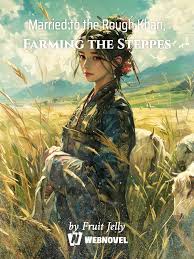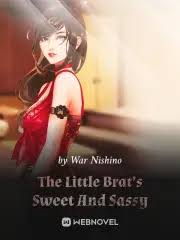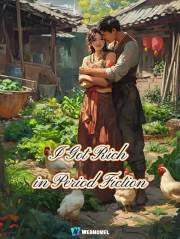The Story in 3 Sentences
A Han princess, Li Xianyun, enters a political marriage with the formidable Khitan Khan Yelu Yan, who promises her wealth and status but explicitly denies her his heart.
As she integrates into the steppe society, her compassion, intelligence, and quiet strength transform public perception—from scorned outsider to revered figure—while slowly dismantling her husband’s emotional walls.
What begins as a cold alliance evolves into a deep, mutual devotion, where governance, love, and cultural bridge-building intertwine under the vast northern sky.
Why It Stands Out
1. Grasslands Over Palaces
Instead of the typical imperial court drama, the story unfolds against the windswept steppes of the Khitan realm, offering a rare historical romance grounded in nomadic culture, tribal politics, and cross-ethnic diplomacy. The setting isn’t just backdrop—it shapes every decision, ritual, and relationship.
2. Love That Grows in Silence
There’s no instant passion or melodramatic betrayal. The romance blooms through shared responsibility, quiet acts of care, and mutual respect. Yelu Yan’s stoicism cracks not with grand declarations but through small gestures: watering fields she cares about, feigning illness to keep her close, or silencing courtiers who doubt her worth.
3. A Princess Who Builds, Not Just Brides
Li Xianyun isn’t waiting to be rescued. She consults patients, oversees irrigation, manages silk production, and earns loyalty through action. Her power comes not from birthright alone but from consistent, principled engagement with the world around her—a refreshing take on the “political marriage” trope.
Characters That Leave a Mark
There’s Yuchi Qian – a loyal court lady whose daughter Xuanxuan is saved by Li Xianyun, sparking a bond that becomes a quiet symbol of the princess’s growing influence among the Khitan elite.
You’ll meet Li Rui, who appears as a protective figure from Li Xianyun’s past and remains a steady, if distant, anchor to her Han identity, often serving as a bridge between her old life and new responsibilities.
And Bater? They’re the one who leads practical efforts like delivering hemp ropes and managing fieldwork, embodying the grassroots support Li Xianyun cultivates through her hands-on governance.
The Flaws Fans Debate
Some readers felt the ending arrived too abruptly, leaving key political or personal threads unresolved despite the story’s 698+ chapters.
A few noted that while the romance is tender, the absence of significant external conflict—beyond mild court skepticism—makes the narrative feel overly placid for a historical drama set in a volatile era.
Others pointed out that secondary characters, though present, rarely get deep arcs of their own, serving more as reflections of the leads’ growth than as fully independent figures.
Must-Experience Arcs
Ch. 1–50: The Wedding Vow Arc – Li Xianyun arrives in the Khitan lands, faces hostility from locals and officials, and begins proving her worth through medical aid and quiet dignity, while Yelu Yan maintains emotional distance despite growing curiosity.
Ch. 200–280: The Fields and Famine Arc – Drought threatens the western pastures; Li Xianyun organizes irrigation and crop planning, earning widespread admiration, while Yelu Yan starts openly defying tradition to support her initiatives, signaling a shift in their dynamic.
Ch. 600–698: The Legacy Arc – With their union now unshakable, the couple focuses on institutional reforms, cultural integration, and preparing the next generation, culminating in a bittersweet yet satisfying conclusion that emphasizes lasting impact over dramatic climax.
Killer Quotes
“Why are you avoiding this Khan?”
“They say you might have taken a liking to your servant.”
“Remove ‘might’. Isn’t it obvious enough from how this Khan acts?”
“Which is more important, rules or a human life?”
“The Han people always say that one should start a family and then establish a career; clearly, the two are not in conflict.”
Cultural Impact
The novel gained traction in English-speaking webnovel communities for its refreshing departure from transmigration and harem tropes, praised as a “gentle yet intelligent” romance rooted in historical authenticity.
Fans frequently shared screenshots of Yelu Yan’s faux-sick antics or Li Xianyun’s pragmatic wisdom on forums like Reddit and Novel Updates, turning moments like “Your husband is a patient” into low-key memes.
Its 4.44 rating on Webnovel and consistent reader engagement—evidenced by golden ticket donations and chapter-by-chapter commentary—reflects its niche but devoted following among historical romance enthusiasts.
Final Verdict
Start Here If You Want:
A slow-burn marriage-of-convenience romance where emotional intimacy grows through shared purpose, not just passion.
A historically grounded story that treats cross-cultural marriage as a site of mutual transformation, not conquest.
A female lead whose strength lies in empathy, competence, and quiet persistence rather than supernatural powers or scheming.
Study If You Love:
Narratives that explore how soft power—medicine, agriculture, diplomacy—can reshape rigid patriarchal or tribal structures.
The evolution of masculine vulnerability in historical male leads who learn to love without losing authority.
Depictions of steppe civilizations that avoid exoticization and instead present Khitan society with internal logic, rituals, and dignity.
Avoid If You Prefer:
High-stakes political intrigue or battlefield drama as central drivers of plot.
Fast-paced romance with overt jealousy, love triangles, or dramatic misunderstandings.
Stories where the heroine’s influence comes solely from her relationship to the hero rather than her own agency and labor.





